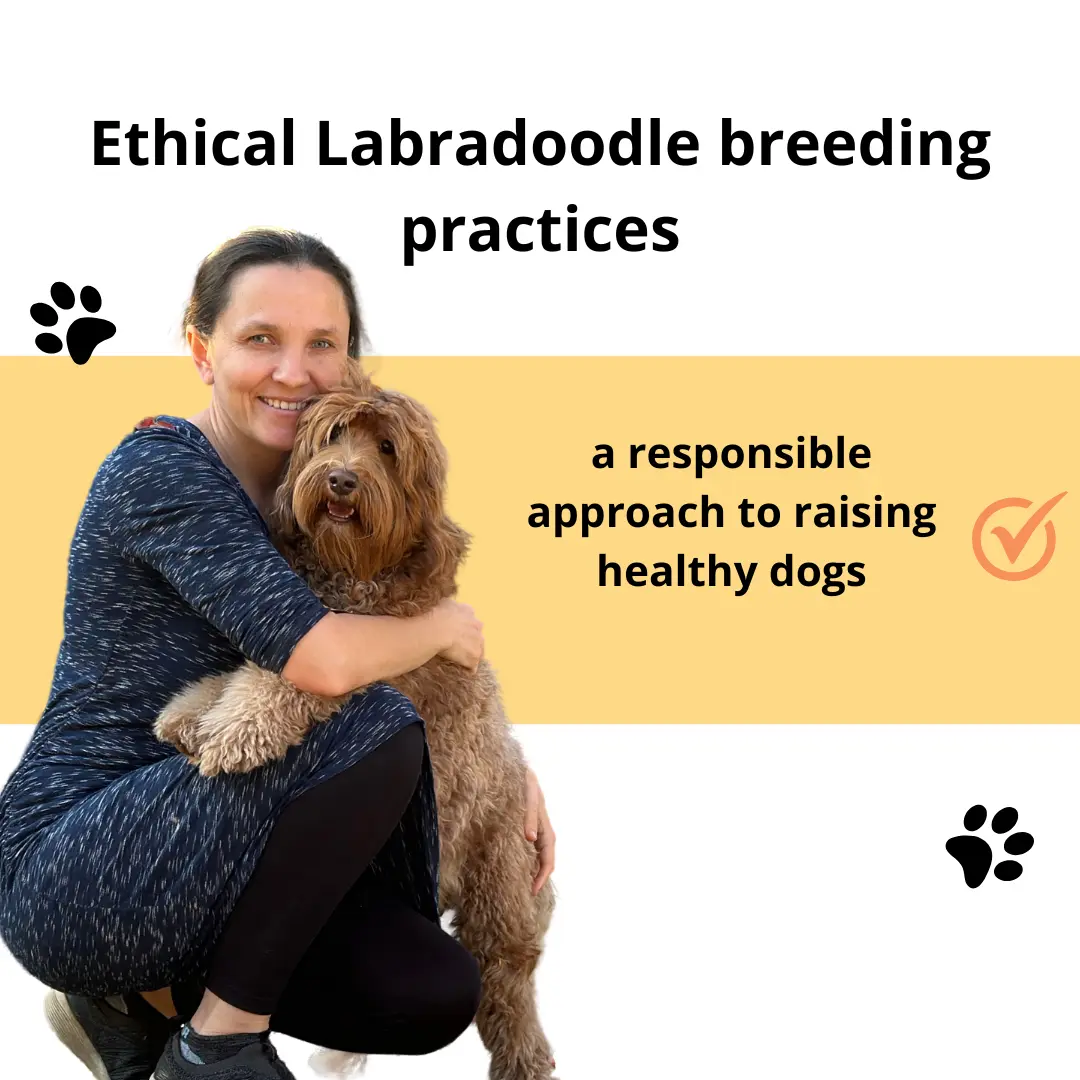When it comes to Labradoodle breeding, ethics and responsibility should always come first. With the growing popularity of this intelligent and affectionate hybrid breed, it’s more important than ever to follow ethical Labradoodle breeding practices. Ethical breeders prioritize the health, temperament, and well-being of both parent dogs and puppies, ensuring a better future for the breed and satisfaction for the new owners.
In this article, we’ll explore what responsible Labradoodle breeders do differently, how to identify ethical practices, and why it’s crucial to avoid irresponsible or profit-driven operations.
What Are Ethical Labradoodle Breeding Practices?
Ethical breeding practices refer to methods that prioritize animal welfare over profit. This includes health testing, responsible pairing, proper care, and lifetime support for puppies and their new families.
For Labradoodle breeders, ethical practices begin long before the mating process. Reputable breeders ensure that both the Poodle and Labrador Retriever parents are thoroughly health tested for hereditary conditions, have stable temperaments, and are a good genetic match.
Health Testing: The Foundation of Responsible Breeding
One of the cornerstones of ethical Labradoodle breeding is health screening. Ethical breeders perform a variety of genetic and physical tests to reduce the risk of passing on hereditary diseases. These may include:
- Hip and elbow dysplasia evaluations
- Eye testing through CERF or OFA
- DNA testing for conditions like PRA (Progressive Retinal Atrophy) and EIC (Exercise-Induced Collapse)
By conducting these tests, breeders ensure that Labradoodle puppies are more likely to live long, healthy lives — a critical part of responsible breeding.
Choosing the Right Temperament
Labradoodles are known for their friendly, social, and intelligent nature. Ethical breeders carefully select parent dogs with calm, balanced temperaments to pass on these desirable traits. This helps reduce the likelihood of behavioral problems later in life.
In ethical Labradoodle breeding, socialization also begins early. Puppies are raised in a home environment where they are exposed to everyday sounds, people, and other pets — setting the foundation for confident, well-adjusted adult dogs.
Avoiding Puppy Mills: Spotting the Red Flags
Unethical breeding practices often take place in puppy mills, where dogs are treated as commodities rather than living beings. These operations typically skip health testing, keep animals in overcrowded or unsanitary conditions, and focus solely on profit.
When searching for a Labradoodle breeder, always look for signs of ethical standards. Avoid breeders who:
- Can’t show you where the puppies are raised
- Don’t offer health guarantees or test results
- Sell multiple breeds at once or have constant litters available
- Avoid answering detailed questions
Ethical Labradoodle breeding practices are transparent and welcoming. Responsible breeders are proud to show you their facility, provide references, and remain in touch long after the sale.
Early Socialization and Proper Care
Another key aspect of responsible Labradoodle breeding is early socialization and care. Puppies should be raised in a clean, nurturing environment where their physical and emotional needs are met.
This includes:
- Proper nutrition
- Regular vet checkups
- Clean living areas
- Opportunities to explore, play, and bond with people
Ethical breeders also begin basic training and introduce crate and potty training to help ease the transition into the puppy’s new home.
Lifetime Support and Return Policy
Ethical Labradoodle breeders don’t just sell a puppy and walk away. They offer ongoing support to help new owners with questions about training, grooming, health, and more.
In addition, a truly responsible breeder will offer to take the dog back if the owner can no longer care for it — at any age. This commitment ensures that no dog ends up in a shelter or abandoned, reinforcing the breeder’s dedication to animal welfare.
Certifications and Breeder Associations
Reputable breeders often belong to organizations that promote ethical Labradoodle breeding practices, such as:
- ALAA (Australian Labradoodle Association of America)
- WALA (Worldwide Australian Labradoodle Association)
- Good Dog’s Responsible Breeding Program
These affiliations require breeders to meet high standards for health, ethics, and care — another sign that you’re working with a responsible professional.
How to Choose an Ethical Labradoodle Breeder
If you’re considering bringing a Labradoodle puppy into your home, follow these tips to find an ethical breeder:
- Ask for Health Clearances: Ensure both parents have undergone full genetic testing.
- Visit in Person: A responsible breeder will invite you to meet the puppies and see their environment.
- Check References: Talk to previous buyers about their experiences.
- Review the Contract: A good contract outlines health guarantees and return policies.
- Trust Your Instincts: If something feels off, it probably is.
Choosing an ethical breeder may take more time and effort, but it ensures you’re supporting humane practices and getting a healthy, well-raised dog.
Final Thoughts: Supporting Responsible Breeding
In today’s world, where designer dog breeds like the Labradoodle are increasingly popular, it’s easy for unethical breeders to take advantage of high demand. By understanding and supporting ethical Labradoodle breeding practices, you help raise the standard for all breeders — and most importantly, give your future pet the healthiest, happiest life possible.
Whether you’re a potential dog owner or an aspiring breeder, remember: quality, care, and compassion should always come before profit.



